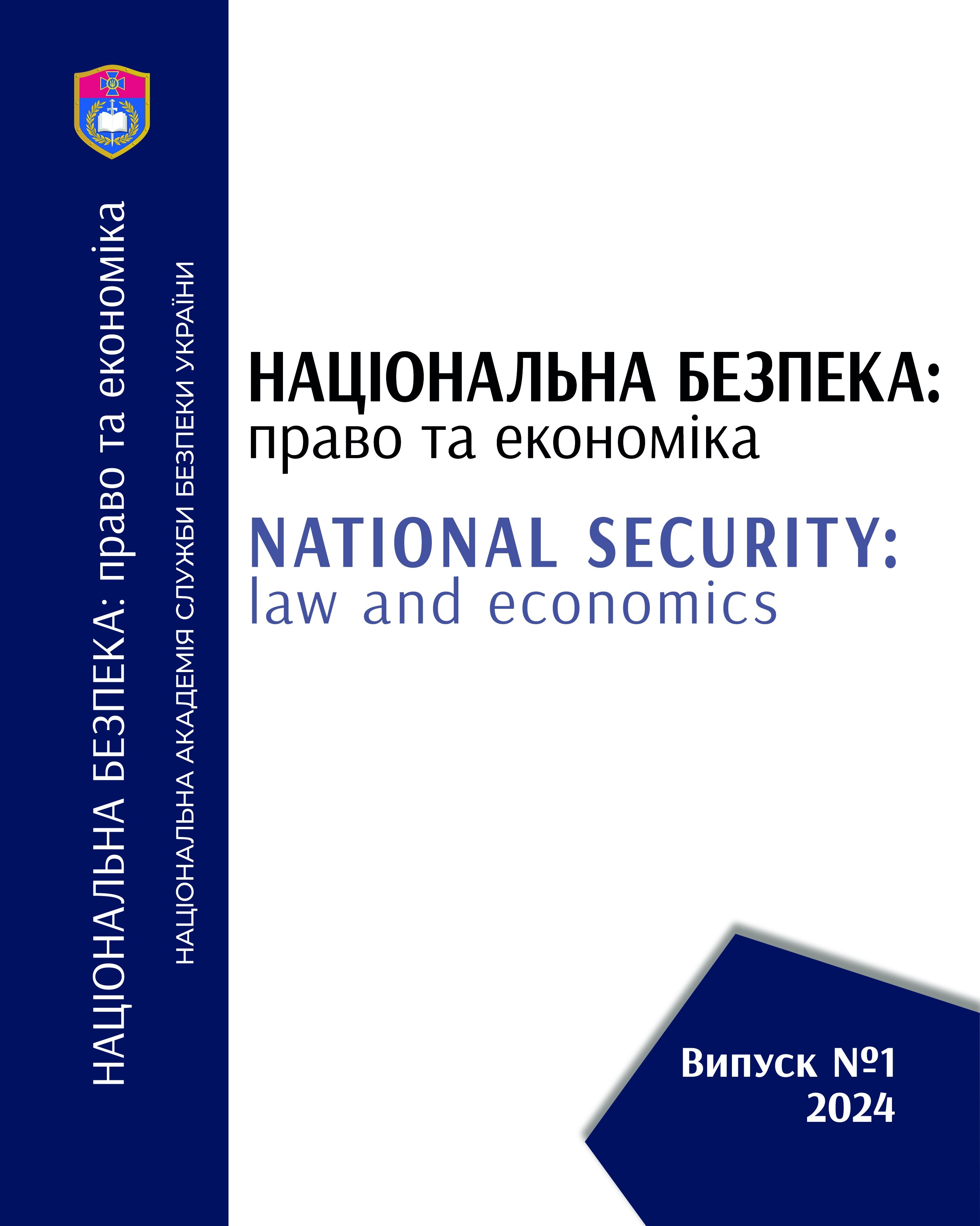Published 12/29/2024
Keywords
- criminal liability,
- treason,
- collaborative activity,
- assistance to the aggressor state,
- crimes against the foundations of national security

This work is licensed under a Creative Commons Attribution 4.0 International License.
Abstract
In this work, a distinction is made between collaborative activity and treason. It is substantiated that there is an additional optional object (life and property rights) in the collaborative activity, and its individual forms of manifestation require the establishment of a special subject - material resources. The indicated actions differ between the individual and the subject, since collaborative activity can be performed not only by a citizen of Ukraine, but also by a foreigner and a stateless person. The position is argued that the main criterion for demarcation is the ascertainment of the presence or absence of the task of a foreign state, organization or their representatives. Auxiliary criteria are time and setting, since collaborative activities usually take place in already occupied territories, or at least already started armed conflict or under martial law. Attention is drawn to the fact that the intent to commit treason is inextricably linked to the establishment of a connection between a citizen of Ukraine and a foreign state, its organizations or their representatives, aimed at harming sovereignty, territorial integrity and inviolability, defense capability, state, economic or informational security of Ukraine. Treason can be committed for the benefit of any state, and collaborative activity - only for the benefit of the aggressor state.
The transition to the side of the enemy in the form of voluntary participation of a citizen of Ukraine in illegal armed or paramilitary formations created in the temporarily occupied territory and/or in the armed formations of the aggressor state or assisting with such formations in the conduct of hostilities against the Armed Forces of Ukraine from collaborative activities turns out to be impossible to distinguish.
The abovementioned determines the presence of different judicial practice, which stands in the way of the realization of the right to a fair trial. The indicated problem can be solved in several ways: 1) make changes to the current criminal legislation by interpreting the phrase "turning over to the side of the enemy" so that its meaning differs from the specified manifestation of collaborative activity; 2) to exclude from collaborative activity as a manifestation of collaborationism the voluntary participation of a citizen of Ukraine in illegal armed or paramilitary formations created on the temporarily occupied territory and/or in the armed formations of the aggressor state or providing assistance to such formations in conducting hostilities against the Armed Forces of Ukraine, since these actions are a transition to the side of the enemy; 3) give conclusions at the level of the Supreme Court, guided by the provisions of Art. 434-1 of the Criminal Procedure Code of Ukraine, which will ensure the equal application of the provisions of criminal legislation.
References
- Гончаренко К. Ю. Державна зрада чи колабораційна діяльність? Проблеми кваліфікації злочинів проти основ національної безпеки. Збірник наукових праць Харківського національного педагогічного університету імені Г. С. Сковороди. «ПРАВО». 2022. Вип. 36. URL: http://journals.hnpu.edu.ua/index.php/law/article/view/7943 (дата звернення: 25.11.2024).
- Олійник Є. В. Матеріальні ресурси: підходи до розуміння та визначення. Вісник Кременчуцького національного університету імені Михайла Остроградського. 2017. Вип. 3(2). С. 59–64.
- Кримінальний кодекс України: контрольний текст проекту. URL: https://newcriminalcode.org.ua/upload/media/2024/02/26/kontrolnyj-tekst-proyektu-kk-25-02-2024.pdf (дата звернення: 25.11.2024).
- Кримінальна відповідальність за злочини проти основ національної безпеки України (проблеми кваліфікації): монографія / [О. Ф. Бантишев, О. В. Шамара]. 3-тє вид., переробл. та допов. Луганськ; Київ : Віртуальна реальність, 2014. 197 с.
- Кончук Н. С. Кримінальна відповідальність за державну зраду : дис. … канд. юрид. наук : 12.00.08. Львів, 2019. 218 с.
- Вирок по справі № 229/7141/23 від 7 лютого 2024 року. URL: https://reyestr.court.gov.ua/Review/116844571 (дата звернення: 25.11.2024).
- Вирок по справі № 243/727/24 6 лютого 2024 року. URL: https://reyestr.court.gov.ua/Review/116789888 (дата звернення: 25.11.2024).
- Яковюк І., Рубащенко М., Шульженко Н. Колабораційна діяльність (ст. 111-1 КК): загальний огляд та деякі законодавчі недоліки. Деокупація. Юридичний фронт : матеріали Міжнародного експертного круглого столу (Київ, 18 берез. 2022 р.) / Державний торговельно-економічний університет, Українська асоціація порівняльного правознавства, Українська асоціація міжнародного права, Асоціація реінтеграції Криму ; упоряд. і наук. ред. О. В. Кресін. Київ : Держ. торг.-екон. ун-т, 2022. 224 с. URL: https://knute.edu.ua/file/MjIxNw==/27cc38a6612c0cbea72be02ece330fa5.pdf (дата звернення: 25.11.2024).



